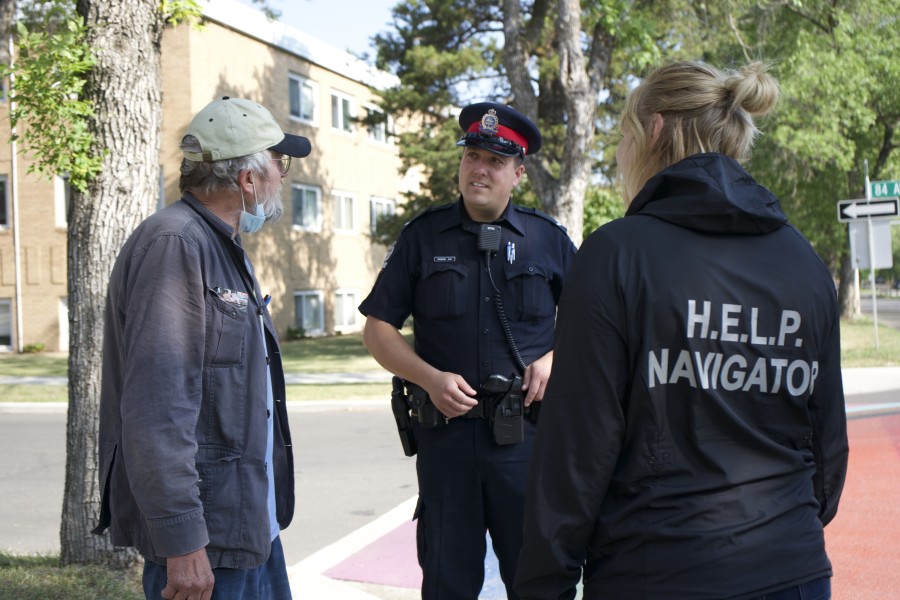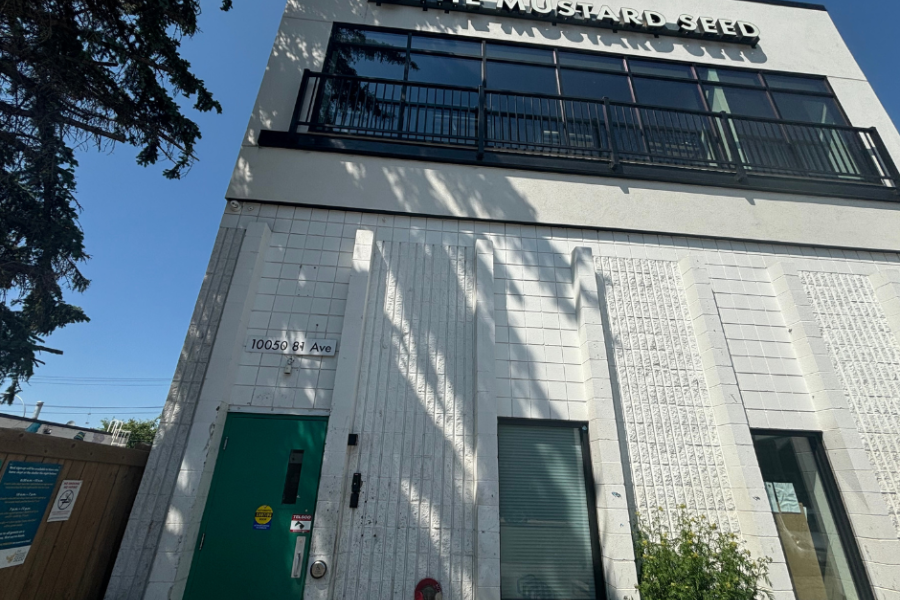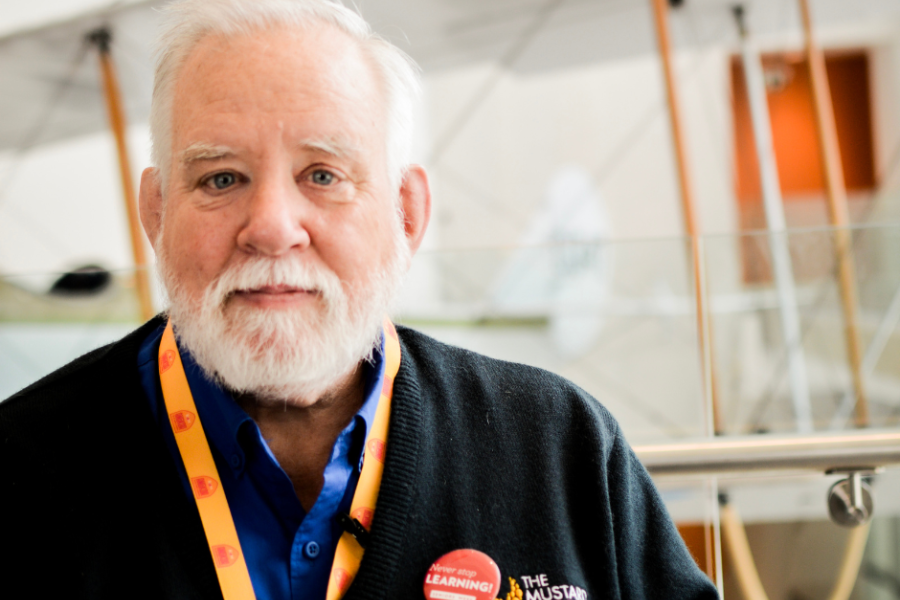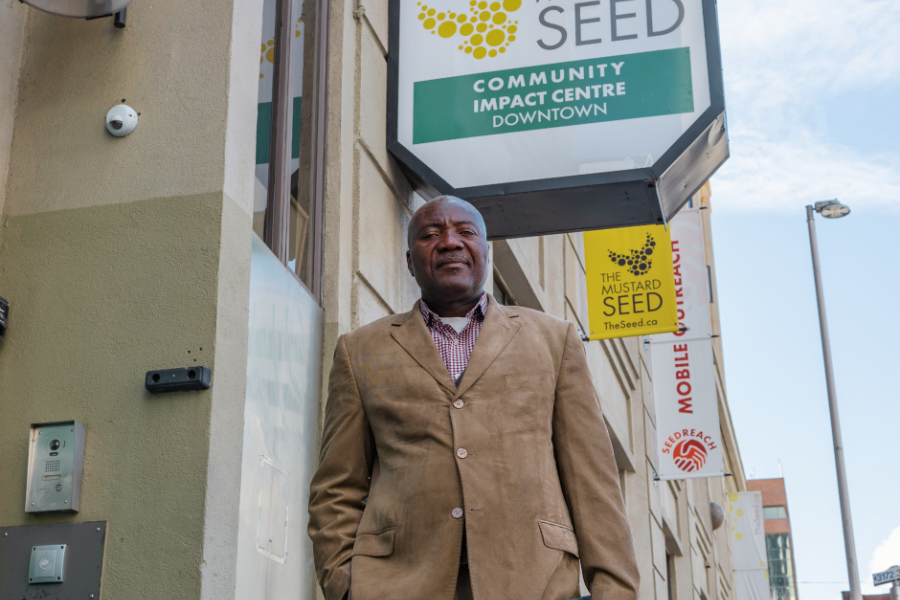“It’s about filling the gap between the individual and their needs that need to be met,” says Rachel, manager of HELP navigators.
The Human-Centered Engagement and Liaison Partnership, or more commonly known as HELP, was started in January of 2021. This partnership was created to work with the Edmonton Police Service (EPS) to divert at risk, vulnerable, and marginalized individuals to the proper support systems.
HELP was created to fill a gap that was being diverted to the police service. It's a team that assists the EPS with call diversion to ensure the appropriate resources respond at the right time to the right event.
“Police get called for everything, even when it’s non emergent,” says Rachel.
However, these liaison workers, called Navigators, have the time and resources to stand beside those that need a little extra help and can face life’s challenges alongside them.
HELP is supported by The Mustard Seed and 5 other agency partners to decrease the time front line police officers spend managing social disorder calls. Navigators work on alleviating social determinants of health and helping people access basic needs.
“HELP will allow us to break down the silos, bridge the gaps in service, and use data for evidence-based solutions that provide wrap-around support for hundreds of individuals who have become unnecessarily entrenched in the criminal justice system,” said EPS chief Dale McFee in a news release about the new partnership.
The goal of HELP is to shift towards social policing. Social policing, or community policing, is about integrating police agencies more closely with the communities they serve. The design gives residents and neighbourhood groups a seat at the table and the chance to collaborate with partners such as non-profits and community health centres.

While this concept may seem new, the idea of community policing has been around for a while. Sir Robert Peel, who is known as the ‘Father of Modern Policing,’ established the London Metropolitan Police in 1829 and set forth several principles that remain crucial in police services to this day. One of those principles could be considered the seed of social policing, that “the police are the public and the public are the police.”
Even though social policing has roots almost 200 years old, it takes time and resources to implement. It also takes the cooperation of the police and the surrounding community to make a difference, because, as important as this new program is, it should not be viewed as an alternative to the police service, but a team that can work alongside them.
“We know social policing, community safety and well-being takes time, and a lot of dedication by partners, but we know it works. We have seen and heard such amazing success stories of community members getting off the streets. As long as we stick together and hold each other accountable to improve their lives it will always be worth it,” says EPS chief Dale McFee.
HELP navigators focus on connecting people with social supports and building real relationships with those they work with. It is not a service provider but helps create a bridge to connect people with certain services.
“We ask [clients] what their goals are and are there to help them reach those goals,” says Rachel.
This program already plays a vital role in the community and is showing that there can be alternative solutions to helping those in difficult situations.
The name is also very fitting, that when our vulnerable population is in need, all they have to do is call for HELP.



